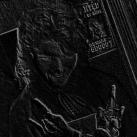Leaderboard
Popular Content
Showing content with the highest reputation on 05/17/2023 in all areas
-
Thanks Henry! That's good to know I've kept up with the variety. Interesting take on the introvert/extrovert, I think you're right! yeah you're right, it's too heavy. I'm going to look into fixing this for the final edit. Thanks man. This and no.8 had some moments that I might change, but overall I'm satisfied with the result. The main motif wasn't my favorite, but I liked how different it was from every other piece in this set. Kind of gave me Sabre Dance vibes. The audio ending is a mistake, thanks for pointing that out. I'm always glad to hear your thoughts on my music 🙂 Hey Peter, thanks for sharing some thoughts. I dug the groove too. It was a goal with this one to just run with development and see where it took me. shhhhhh....... they mustn't know2 points
-
@Rich: You flatter me extravagantly - but I'll take it! Thank you very much. @HtWinsor Thank you kindly! @PeterthePapercomPoser: Ha, I'm so glad you got a kick out of the Polonaise! You know, the historic and cultural antipathy between Russia and Poland never even occurred to me. I know that in Russia they used to like to dance the Polonaise though - Tchaikowsky wrote one of the best ever penned for his opera "Eugene Onegin - but other than that I can't think of much in the way of respect that Russia has ever paid to the Polish people, aside from coveting their land and resources - repeatedly. I think it has a lot to do with what are assumed to be the reasonable limits of amateur or student musicians. It may also be due in part to the fact that Finale assumes Horn in F when figuring range, but I'm not sure. Thanks for your comments and I'm glad you enjoyed the piece! @Carl Koh Wei Hao: Thanks! and yaayyyy, another thumbs up for the Polonaise, possibly my favourite part of the whole piece. Thanks for your compliments - I've been composing in Classical style since I was 9 years old, and I'm a lot older than most of you here, so I've been at it long enough! @Henry Ng Tsz Kiu: Thank you for yet another thoughtful and generous review! Those are supposed to be "hidden" - I didn't really want to specifically indicate pedaling to a live player, but only to direct Finale how to play it - but they still show up during playback. They are not in the final printed version. Yet another vote for the alla Polacca! Hooray! Thanks again Henry! I'm extremely busy, but I've been enjoying this more than I have at times in the past, so I may just keep coming back whenever I can.2 points
-
Welp, the end has come. The season finale is here. Now I can write for guitar again. I used a lot of forms and styles for this set of pieces, and decided to write a love song type of thing to end it. This was inspired by Beethoven's "Ode to Joy" theme, as well as Pink Floyd's David Gilmour. Lot's of lovey dovey pentatonics in this. Hope you enjoy, and thanks so much to those who have been following along with the progress! You guys are awesome, and when I make final edits, I'll be sure to take everyone's comments and advice into consideration.1 point
-
I have only written a single real fugue, so don't take my word for it. But I agree with Henry WTC is one of the key books for fugues. (there is also the contrapuntus I heard, but I never read it lol) But imo the "game plan" is very important. Do you plan on strettos? inversions? augmentations? All these have the be worked out with the subject itself even before writing the exposition. - the e-flat/d-sharp minor fugue from the first WTC book is a good study piece for what you can do with a single subject, and I love that piece so much - "building bricks" fugues where you can basically switch around the subjects and countersubjects at will, like the b-flat major fugue from the first book or the g-major and f#-minor fugues from the second book How many episodes/parts to you plan on having within the fugue? - the c-sharp major fugue from the first book features a re-exposition - the f-sharp minor fugue from the second book gives each subject and countersubjects their own expositions, then combined them Just a few examples EDIT: I think fugues generally just sound like either Bach or bad, even if it's written by romantic composers like Mendelssohn or Clara. until you get to more contemporary fugue writers like Ravel, Shostakovich and Hindemith and the likes. But that's only a personal reflection/observation.1 point
-
Hello everybody! This is my new piece as a result of my orchestral piece break. I said in my latest post that I was going to upload a prelude, that is still coming, but I kinda wanna try composing a vocal work, so here it is! Searching the material for this work was tough, but I stumbled upon an impromptu poem performed by a character (Scrump Toggins) while watching a roleplay session on WildRP. If I get enough material, maybe I will make a full song cycle, but who knows. Also, there's a quote from a piece that I've uploaded here somewhere in the piece, have fun finding that lol Anyways, this is my first time ever trying to compose a vocal work, so all feedbacks and opinions are appreciated. Enjoy! (P.S Y'know, if anybody wants to sing this I'll gladly provide the instrumental version 👀)1 point
-
Yee tried to add in a bit of that late romanticism outburst in there so I get why it felt a bit out of place. The part from b.78 to b.82 is essentially me attempting to variate the second theme. The result of that modulation (D major) is also the key which the second theme resides and I want the second theme to repeat (with variations) before the end. SO, In conclusion, that whole thing was me trying to add something before the second theme returns, and when I tried to variate the second theme, it sounded like that late romanticism outburst, so I just went with it lol Yep. That is correct. I DID try to sing it to test the vocal range, but trust me, you don't want to listen to me singing lol Thanks for the feedback and the kind words! Glad you enjoyed it!1 point
-
Hi @Ferrum, This one is thoroughly enjoyable for me!! I join the piece most for its polyryhthm. It's in different layers, both within the piano and between the piano and the singer and it really does help the music stretch and become dramatic and expressive. It can be really hard for the piano though. The harmony is also great as you always add spicy flavourings in the harmonies. Some moments it reminds me of Debussy like in the beginning while in some it reminds me of Rachmaninoff particularly in the ending. The modulation in b.78 back to D major is particularly enchanting for me. Other modulations are all mature and effective. Maybe it's just too many things happening in the music and many styles are here. They are all great in themselves but combined together may create a less uniform feeling, but of course this is a very nitpicky opinion. Is the A in b.51 A#? I definitely want you to sing it as a contratenor LoL!! Just kidding! Thanks for sharing great pieces here Ferrum! Henry1 point
-
Here's a short excerpt from the original score of "Stuck With You", a five-minute film written by one of my friends. This project was my first venture into the world of film scoring, and it was a really cool learning experience for me as a young composer. Go check out the film on Youtube to hear this piece in context, as well as a few others I wrote! Score: https://musescore.com/user/20593651/scores/10596973?share=copy_link Film: https://youtu.be/7R55FBJyXzE1 point
-
Thanks so much Henry! I agree, the tempo is a little fast due to the time constraints of the scene. I appreciate you sharing such kind feedback and welcoming me to the site. I’ll definitely start exploring other members’ work! Jack1 point
-
Hi @JP343, Welcome to the forum! Just for the music itself it's a beauty. I think the tempo for the piano accompaniment in 0:33 is too fast though. The transformation to the flat submediant A major at the climactic end is great and oft-used in film music score! Taking the film together the music does create some romantic feeling. Good job on this! Thanks for joining us and make sure to visit other talented members' post as well! Henry1 point
-
Beethoven E-flat major Piano Sonata (the less famous quasi una fantasia), the Molto allegro e vivace movement (not named scherzo but it the spirit of), those syncopations really caught me off guard the first time I heard it (EDIT: oops mentioned multiple times already) I won't repeat again, but yes Czerny's A flat major piano sonata's "scherzo" movement is amazing. Chopin's Piano scherzi 3 and 4. the 3rd is immediately captivating and leaves no room for boredom, but the 4th is actually light-hearted (at least for a significant portion of the piece which I can repeat over and over for my own pleasure). https://www.youtube.com/embed/SbtvChXFhyI?start=1734 Scherzo from Schumann's piano quintet. Feels refreshing after the sombre funeral march. for some reason the viola part playing the scherzo's upward motif got stuck in my mind forever https://www.youtube.com/embed/UQQxpJ7Pn1g?start=1093 Scherzo from Schubert's string quintet. Yes I'm biased, double cello ftw. Very good use of the viols' capabilities.1 point
-
Hey @PCC, Haha it's kind of messy though. I do occasionally use handwriting manuscripts now but only for jotting down ideas ans inspirations rather than writing full piece of music like this one! I am definitely not like Peter who is a paper composer! At least I'm happy that I don't stay in this level now and see my progress. You can too! I was way too Beethovanian then which is not a bad thing (actually a good thing). Yup I can say most of my music is quite emotional and they are not to be taken as delightful pleasure. When I composed I have much to say and emotion to express, and I never compose for the sake of composing only. Art for art's sake for me is irrelevant sinceI remember Tolstoy said, "Beauty without truth is disgusting." At least they should be sublime if they are pure sublimity rather than beauty. Take your time and listen to it if you want! Thanks for noticing the post! Henry1 point
-
Thanks for the detailed review! This is made with musescore. And yes that is why I complain about generated sound files lol. Maybe the reason the development seems short was that I was under a self-imposed constraint of "keep it short" for a sonatina, but I agree I did not do very much there except to lead back to the recap. Curious what you mean by "British" gestures.1 point
-
What I like about this piece is - it really grooves. Everything is related to everything else in a coherent whole. Even the contrasting slow parts. The motives really accelerate and snowball into ever more and more intense versions of themselves. It's perfect! It doesn't have any! Unless you're talking about your faults ... ??? Don't get me started on those .. 🤣1 point
-
A bit powerful introduction, though not too much of my liking. I am not sure if it's more because of the soundfont that sound a bit too much like a hammer hitting the piano but well we do what we can with what we get. I really liked the section starting at 1:15 approx and the transition to the slow section is very masterfully driven. This piece has undoubtedly a particular charisma that would make it easy to distinguish among others. It is well engraved, as always. There are some "mistakes" regarding silences compression but I guess that's just a particular trait or obsession I have lol. I would say the "recapitulation" is well done, so I believe that the majority of motives lying in the "agitato" section might be the stuff that is not convincing me of this whole prelude. However, you still do a very solid work using them, and thus the piece never gets boring. The ending is quite peculiar, and the only problem I have with it is not even related to it directly: the audio goes to zero abruptly just after the last note. I must say that the other font you used for the title of the eleventh prelude was a kind of better haha. Kind regards!!1 point
-
Hey Vince, I think in the set you start out by deliberately writing in different styles: no.1 a sad song, no.2 a nocturne, no.3 a tragic slow lament, no.4 a prelude, no.5 a funny joke and no.6 a romance. There are your features in these preludes but less apparent. Starting from the latter half I think your influence and style starting to more apparently emerge in the music with those playful harmony and American music genres. They are becoming less personal and more your extrovert self in my opinion, which is a good thing for the variety of the set. But there still 2 to go and my opinion can be invalid! I am not familiar with his music at all. I only get fairly familiar with his Piano Sonata no.6 and 7, and also his Symphony no.7 since it's in C# minor though not for long. I really get into his music by listening his 7th Piano Sonata so you can try that too! Henry1 point
-
0 points
-
Hi, Carl I don't think Winsor likes to communicate on this platform, I've tried reaching out and put some work in to show I'm friendly and helpful as is the custom on here. It's disappointing because it's such minor things that need correcting. He could improve so much with the help of others who are a little further on the musical learning journey. He seems to want to publish and not interact. For example bar 4 is so easily corrected, A minor 1st inv. to D to G is the correct progression here. I played his piece at the piano with all the minor harmonic and playability problems solved and it's a fantastic piece, I really enjoyed it, but I decided not to publish the amended version because it'll just be overlooked and 2 hours would be wasted; writing it all down and then recording it.0 points




.thumb.png.8b5b433a341551e913a34392660bc95b.png)

